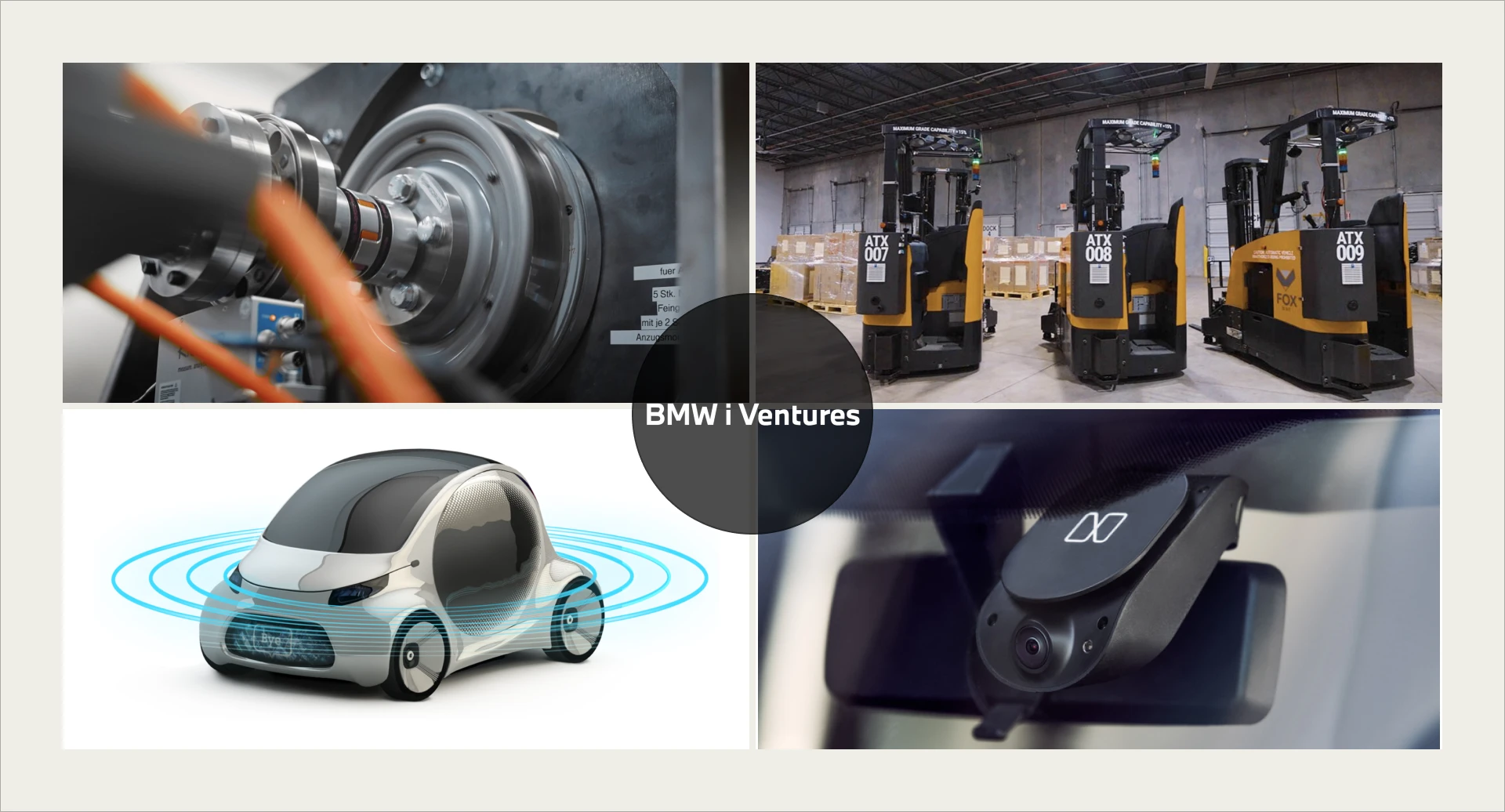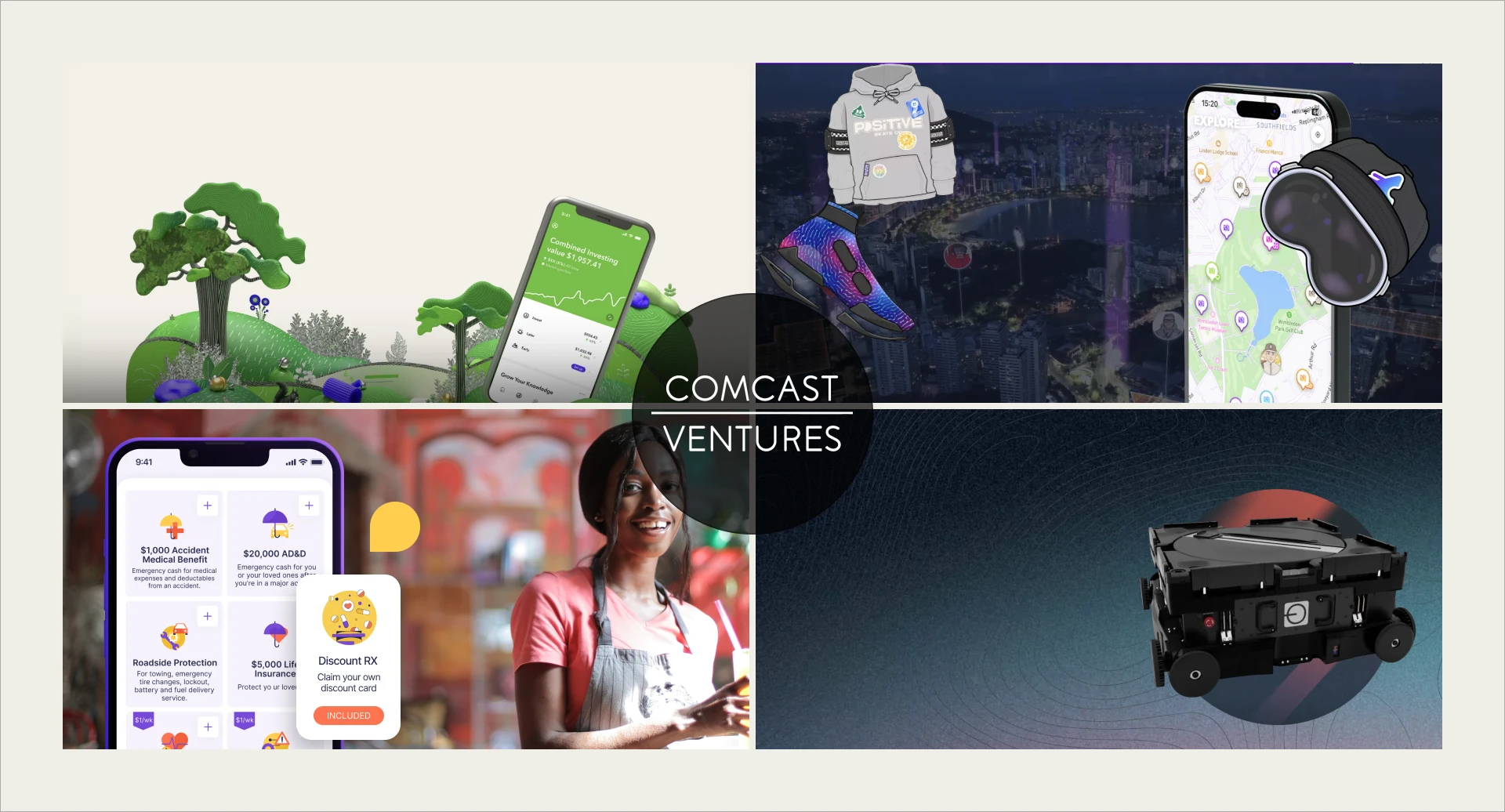Key takeaways
Over the last decade, corporate venture programs have emerged as a proven tool to help companies fuel innovation and maintain a competitive edge. These vehicles are enabling companies across industries to tap into the external landscape:
- Accessing cutting-edge technologies
- Gaining emerging market insights
- Building thriving innovation ecosystems
So, it’s not surprising that today, over 50% of Fortune 100 companies have established their own venture programs, each tailoring their strategies to fit unique goals, assets, and capabilities. By investing in and partnering with startups, these companies are accelerating the innovation process, mitigating risks, and driving growth at lower costs.
To give you a better idea of how corporate venture programs work in practice, we’ve highlighted 10 real-world examples from top corporations in various industries, including tech, luxury, mobility, finance and more.
1. Unilever Ventures
Parent company: Unilever
Founded: 2002
Headquarters: UK
Active in: Tech, Beauty & Wellness
Unilever Ventures scouts and scales forward-thinking beauty, wellness, and technology-driven startups by providing them with the tools, funding, and global networks they need to become disruptive brands. It is stage-agnostic, investing in ventures from seed to series D.
The venture program is stage-agnostic, meaning it does not limit its investments to companies at a particular phase of development. Instead, Unilever Ventures is open to engaging with startups at various stages, from early seed-level companies just getting off the ground to more established ventures looking to expand in their Series D rounds. This flexibility allows it to support innovation at multiple levels and timelines, fostering a diverse portfolio of startups.
How does it benefit the parent company?
Unilever Ventures is tapping into the external startup ecosystem to help keep Unilever at the forefront of consumer trends and technologies. This relationship not only helps Unilever stay ahead of new market opportunities but also integrates these innovations into its offerings, maintaining Unilever's competitive edge.

2. Porsche Ventures
Parent company: Porsche
Founded: 2018
Headquarters: Germany
Active in: Tech, Mobility, Sustainability
Porsche Ventures partners with entrepreneurs worldwide through its locations in Europe, the US, Israel, and China. It helps startups scale by providing them with access to Porsche's global network, industry expertise, and collaboration opportunities. By identifying and investing in emerging technologies, Porsche Ventures is helping to enhance Porsche's core capabilities in mobility, intelligent enterprise solutions and sustainability. This strategic approach helps drive innovation across all areas of the company.
How does it benefit the parent company?
By partnering with innovative startups worldwide, Porsche Ventures enables Porsche to stay at the cutting edge of technology and market trends. This access to new ideas and breakthroughs opens up new market opportunities and ensures that Porsche remains competitive and adaptable in a rapidly evolving industry.

3. Rabo Investments
Parent company: Rabobank
Founded: 2002
Headquarters: Netherlands
Active in: Agtech, Sustainability
Rabo Investments is the venture capital and private equity division of Rabobank, focusing on opportunities in areas like sustainability, food production, and agricultural technology (agtech). Its goal is to foster the growth of high-potential startups that align with Rabobank's broader mission to establish a sustainable, future-proof food supply.
Rabo Investments manages its diverse portfolio through four dedicated teams: Private Equity, Fund & Co-Investments, Ventures, and Corporate Ventures. Each team brings specialised expertise and strategic support to their investments, ensuring a robust approach to nurturing innovation and growth within the food and agriculture sectors.
How does it benefit the parent company?
Rabo Investments’ targeted investment strategy is helping Rabobank boost its capabilities in emerging technologies and sustainable practices.

4. LVMH Luxury Ventures
Parent company: LVMH
Founded: 2017
Headquarters: France
Active in: Tech, Luxury
LVMH Luxury Ventures invests in emerging brands in beauty, fashion, and luxury retail, providing funding and access to LVMH’s global resources and expertise. With equity investments ranging from €5m to over €25m, it targets startups with the potential to advance the digital transformation of the luxury sector.
How does it benefit the parent company?
LVMH Luxury Ventures acts as a strategic tool for LVMH, allowing it to tap directly into cutting-edge trends and innovative business models within the luxury market. This proactive approach helps LVMH stay ahead of industry dynamics, enriching its portfolio with new, progressive ventures that align with its vision for the future of luxury.
5. BMW i Ventures
Parent company: BMW Group
Founded: 2011
Headquarters: USA
Active in: Automotive
BMW i Ventures invests in cutting-edge ventures in areas like AI, hardware, software, sustainability, and manufacturing technologies. It supports startups at all stages, providing them with capital as well as strategic access to BMW’s network and industry expertise.
Since its inception in 2011, BMW i Ventures has produced over 11 unicorns, showcasing its success in advancing innovative technologies that align with BMW’s future-focused strategy.
How does it benefit the parent company?
BMW i Ventures is helping BMW integrate breakthrough technologies into its portfolio, supporting its vision for a smarter, more sustainable future. These advances are reinforcing BMW's commitment to innovation and boosting its competitive edge in the market.

6. Comcast Ventures
Parent company: Comcast NBCUniversal
Founded: 1999
Headquarters: USA
Active in: Tech, Media
Comcast Ventures invests in startups with the potential to shape Comcast’s next 60+ years. Established to identify and leverage technologies and market trends that align with Comcast's strategic interests, it invests in areas like data and AI, energy and sustainability, health tech, proptech, and more.
Ventures are nurtured and scaled with access to capital, valuable industry insights, and a vast network of resources within Comcast’s global ecosystem.
How does it benefit the parent company?
Comcast Ventures is fueling Comcast's strategic growth by tapping into the external startup ecosystem to enhance and diversify its product suite. This initiative results in improved customer experiences and expanded service capabilities. By proactively engaging with innovative startups, Comcast Ventures ensures that Comcast remains aligned with the latest technological advancements and market trends, facilitating ongoing evolution and maintaining its competitive edge.

7. Intel Capital
Parent company: Intel
Founded: 1991
Headquarters: USA
Active in: Tech, Hardware, Software
Intel Capital is the venture capital arm of Intel Corporation, focused on investments in four key areas, including cloud, devices, frontier and silicon. Over the last three decades, it has invested over $20B to help develop innovations in these areas.
Through strategic funding, Intel Capital supports the growth of cutting-edge technology startups and facilitates the integration of their advancements into Intel's larger ecosystem.
How does it benefit the parent company?
Intel Capital significantly enhances Intel's strategic positioning by tapping into the external startup ecosystem, broadening its portfolio with access to new and emerging technologies. It's investments enable Intel to incorporate cutting-edge innovations across various tech sectors directly into its business operations, boosting its technological capabilities and staying ahead of potential disruptions.

8. Henkel Tech Ventures
Parent company: Henkel
Founded: 2016
Headquarters: Germany
Active in: Tech, Sustainability
Henkel Tech Ventures invests in and co-develops technologies that can be integrated into Henkel's product offerings. Areas of interest include automated manufacturing, circular economy, predictive maintenance and more.
Henkel Tech Ventures invests in and co-develops technologies that can significantly enhance Henkel's product offerings. It focuses on areas like automated manufacturing, circular economy initiatives, predictive maintenance, and more.
How does it benefit the parent company?
Henkel Tech Ventures is helping Henkel access cutting-edge technologies to fuel its operational growth and competitive edge in the market. Through this venture program, Henkel is able to access and integrate new tech solutions, enhancing its own product performance and sustainability—both key components in Henkel's long-term business strategy.

9. Microsoft Ventures (M12)
Parent company: Microsoft
Founded: 2016
Headquarters: US
Active in: Tech, Software
M12, Microsoft's venture fund, strategically invests in tech startups that complement and enhance Microsoft's core business areas and strategic growth objectives. The fund provides access to capital and Microsoft’s vast ecosystem, market insights, and technological expertise, all designed to help startups scale quickly and efficiently.
M12 focuses on a diverse range of technological fields, including AI, cloud services, cybersecurity, vertical SaaS, and emerging areas like Web 3.
How does it benefit the parent company?
By investing in startups that align with and advance its business priorities, M12 enables Microsoft to integrate new technologies and solutions rapidly. This access to pioneering developments and talent helps Microsoft stay ahead of technological shifts, thus securing its position as a leading force in the industry while fostering the next generation of tech advancements.

10. Kering Ventures
Parent company: Kering
Founded: 2012
Headquarters: France
Active in: Luxury
Kering Ventures strategically invests in early-stage startups that sit at the intersection of technology, commerce, and culture, shaping the future of the luxury sector. Focusing on fashion, beauty, and lifestyle segments, this venture program invests between €1M and €10M, supporting companies that bring cutting-edge perspectives and technologies to traditional luxury markets.
How does it benefit the parent company?
By integrating these startups into Kering’s ecosystem, Kering Ventures is paving the way for the next generation of luxury consumers. This strategic integration aids in future-proofing Kering’s brands, keeping them relevant and competitive in a rapidly changing industry.

Final thoughts
Each of the examples featured in our list showcases how different companies have tailored the venture program strategy to fit their own unique set of assets, growth goals and resources—with stellar results. Use them as guidance and inspiration for your own innovation journey.
For more great examples, be sure to check out our report, 25 Corporate Innovation Program Examples, highlighting how top corporates around the world tackle their venturing activities, innovation horizons, venture focus and more.
____
Looking to implement or boost your innovation strategy? We can help you build a practical roadmap that leverages your unique corporate assets to make it happen.
20 sustainable corporate venture examples.
The new business models rewriting our future.










